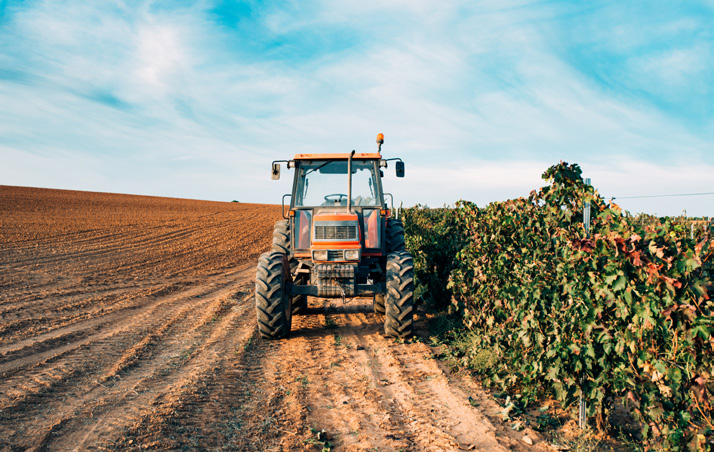Sipping a glass of red wine or white wine is a moment of reminiscence for a lot of imbibers worldwide. Occasional sippers and recreational tasters are seized with excitement of the organoleptic properties of their favourite wines. However, rising pressure from environmental protagonists has brought to the fore emerging issues in the winery sector especially related to reduction of greenhouse gas emissions. The environmental impacts of wine making are no longer hidden in the cellars.
It is now apparent that there is an increased call on how we can make wine in a more sustainable manner, with less ecological intensity. The green revolution across global economies has reached fever pitch levels to an extent where most products are being traced within their life cycle. Wine is no exception and we can trace many stages which need to be greener.
The ancient and traditionally revered practice of wine making has always been known for generating greenhouse gas emissions. The establishment of vineyards requires clearance of large tracts of land, thereby causing deforestation and reduction of carbon sinks. Removal of trees is a major concern in vineyards especially during the early stages of the life cycle. Sustainable wineries are carrying out afforestation programmes in order to replace the tree stocks that would have been damaged.
It is key for wine producers to come alive to the reality of biodiversity loss caused by the activity of growing grapes for wine production. However, the prospects of producing value-added wine, foreign currency from wine exports and employment creation are some of the benefits that cannot be ignored. What is important is to ensure that economic benefits of wine making are balanced with the ecological impact on climate change and other facets of the environment.
Water usage in wine making industry is also an issue of concern that needs strategies of sustainable management. In the context of climate change adaptation, water should be used sparingly to ensure a reduction in water conflicts. Competing uses of water and increased water stress call for a pragmatic approaches in managing water usage in wineries.
Nearly 25% of material extracted from grapes will become waste pomace comprising of skins residues, seeds and organic materials and stalks. This organic material can be used for generating energy such as biogas. If left to decompose haphazardly, there is a potential of generating greenhouse gases such as carbon dioxide and methane. Carbon dioxide and methane are well known Greenhouse Gases whose emission is governed by the United National Framework Convention on Climate Change (UNFCCC) as well as the Paris Agreement.

Increasingly, wine making facilities are adopting renewable energy technologies such as solar energy to support their operations and reduce the dependency on electricity derived from carbon intensive sources.
France and Italy are some of the leading wine producers in the world producing some of the best wines and cognacs. Zimbabwe is also a decent producer of wine, whose brands have mesmerised tourists and international buyers who have picked local wine from international retail shelves. If wine is going to end up in the furthest shelf of another part of the world different from the origin, sustainability of the product cannot be ignored. A thorough analysis of the life cycle of wine making is the first step required to clearly zoom into the ecological impact of wine making.
Overview of the Wine Making Process
Usage of chemical pesticides in the process of growing the fruit grapes is an issue which has gained global attention and wine producers have been working on strategies to adopt integrated pest management to reduce chemical intensity. Inorganic fertiliser usage is another area of concern which requires innovative measures of limiting the effects of chemical fertilisers on groundwater quality.
Production of glass bottles used for packaging wine, is an issue of ecological concern in many countries as it is an energy intensive process. Whether sourced or undertaken on site, it surely contributes to a high carbon footprint due to its insatiable energy needs.
Air emissions from farm equipment and farm operations contribute to the overall greenhouse gas emissions emanating from the wine making process.
Concepts such as “cradle to bottle” as well as “cradle to retail” have gained notoriety in the wine making sector in order to arrest the rising impact of wine making on the environment.
A typology of emissions from wine making are presented in the diagram based on the carbon footprint analysis carried out by the California Wine Carbon Footprint (CSWA).
Transport of bottled wine to various retail outlets and shipping wine to international destinations is responsible for 13% of greenhouse gas emissions generated from the sector
Wines that will compete in the 21st Century are those which have evolved in their production process to incorporate environmentally sustainable practices and Life Cycle Assessment (LCA). Advanced economies have begun to banish wines produced from polluting countries and wineries which care for the environment. Certification schemes and labelling of wines is also currently underway.
Your next glass of wine should be with a difference and you can do a lot to influence production of wine in a greener approach that considers future generations. Upholding a traditional process of wine making, carried over many centuries, is essential, but the key realisation is that the current generation can make it cleaner and greener, with a limited impact on the environment. The world can make wineries greener and indeed every product in current use more sustainable.